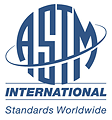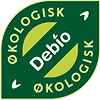Why are third party certifications important? At BioMass Packaging, we believe that certifications are the one of the most useful indicators our customers can use to ensure the products they buy support the claims on the labels.
These reliable third party certifiers — from private sector to governmental agencies — use rigorous testing to meet the highest standards for biodegradability, compostability, resource preservation and renewability.
BioMass Packaging represents products that carry many of the following certifications. The certifications are held by the manufacturer of the product, and not BioMass Packaging.
ASTM International

Formerly known as The American Society of Testing and Materials), ASTM International is a globally recognized leader in the development and delivery of international voluntary consensus standards. More than 12,000 ASTM standards are used around the world to improve product quality, enhance safety, facilitate market access and trade, and build consumer confidence. ASTM certification on product labels ensures stringent specifications have been met or exceeded.
ASTM D6400 certification establishes standards for identifying plastic products and materials that will compost satisfactorily in municipal and industrial aerobic composting facilities. Specific properties are required to determine if these plastics will compost satisfactorily, including biodegrading at a rate comparable to known compostable materials and that the degradation of these materials will not diminish the value or utility of the finished compost.
ASTM D6868 certification has similar standards to ASTM D6400, but covers materials and products (including packaging) that incorporate a biodegradable plastic film or coating (either through lamination, extrusion or mixing). It ensures any entire end product that is designed to be composted in municipal and industrial aerobic composting facilities will compost satisfactorily.
ASTM D6866 certification determines the biobased content of a product using radiocarbon analysis. The amount of bio-based carbon is measured using the ratio of “new carbon” (biomass input) to “fossil carbon” (fossil fuel based input). Biomass contains a well-characterized amount of carbon 14 that is easily differentiated from fossil fuels that do not contain any carbon 14.
www.astm.org
Biodegradable Products Institute (BPI)

The Biodegradable Products Institute is a non-profit, multi-stakeholder association of key individuals and groups from government, industry and academia, which promotes the use and and recovery of compostable materials through municipal composting. All foodservice products that are BPI Certified Compostable have met stringent, scientifically based criteria dictated by ASTM D6400 or ASTM D6868 specifications.
www.bpiworld.org
CONEG

The Coalition of Northeastern Governors (CONEG) has drafted model toxics legislation aimed at banning the use of lead, mercury, cadmium and hexavalent chromium in packaging and packaging inks. These toxic materials include any lead, cadmium, mercury or hexavalent chromium which is intentionally introduced as an element.
Cradle to Cradle

A Cradle to Cradle process transforms traditional “take, make and waste” manufacturing systems into creators of goods and services that generate ecological, social and economic value. The process transcends traditional and irresponsible business practices where raw materials are extracted from the earth and ultimately discarded in landfills.
www.c2ccertified.org
DEBIO

DEBIO is a Norway-based certifier of organic forestry standards, in accordance with the general principles and criteria of the International Federation of Organic Agriculture Movements (IFOAM). DEBIO sustainability standards include extensive and comprehensive regulations for organic forestry (including plantation forestry) and wild harvesting of non-wood products.
Green Restaurant Association

The United States Department of Agriculture (USDA) is the official regulatory and enforcement agency for organic agriculture, food and other products under the National Organic Program (NOP). Goals are the integration of cultural, biological, and mechanical practices that foster cycling of resources, promote ecological balance, and conserve biodiversity.
The NOP develops, implements, and administers national production, handling, and labeling standards in accordance with the Organic Foods Production Act (OFPA) of 1990 (PDF) and regulations in Title 7, Part 205 of the Code of Federal Regulations. The USDA, AMS (Agricultural Marketing Service) and NOP accredit private businesses, organizations, and state agencies to certify producers and handlers of agricultural products according to NOP regulations.
Scientific Certification Systems (SCS)

SCS verifies and certifies manufacturing and marketing claims related to the environment, sustainability, stewardship, food quality, food safety and food purity.
They have developed internationally recognized standards and certification programs in pursuit of the highest level of environmental performance and social accountability. SCS assessments lead to the recognition of accomplishments in greenhouse gas inventories and offsets, agricultural production, food processing and handling, forestry, fisheries, flowers and plants, energy, green building, product manufacturing and corporate social responsibility.
Sustainable Forestry Initiative (SFI)

The SFI program is the world’s largest single forest certification standard, and is internationally recognized and accepted.
Their criteria are based on principles that promote sustainable forest management, including measures to protect water quality, biodiversity, wildlife habitat, species at risk, and Forests with Exceptional Conservation Value.
SFI forest certification promotes responsible forestry practices. SFI chain-of-custody certification is an accounting system that tracks fiber content through production and manufacturing to the end product. And fiber sourcing certification addresses the fact that all forest landowners play a critical role in the long-term health and sustainability of forest – and that 90 percent of the world’s forests are not certified.
SFI labels provide a visual cue to help source responsibly managed forest products. By choosing SFI-certified products, businesses of all sizes can use their buying power to improve forest management while sending a clear signal to customers that they care about forests.
For more information on SFI, please visit www.sfiprogram.org
